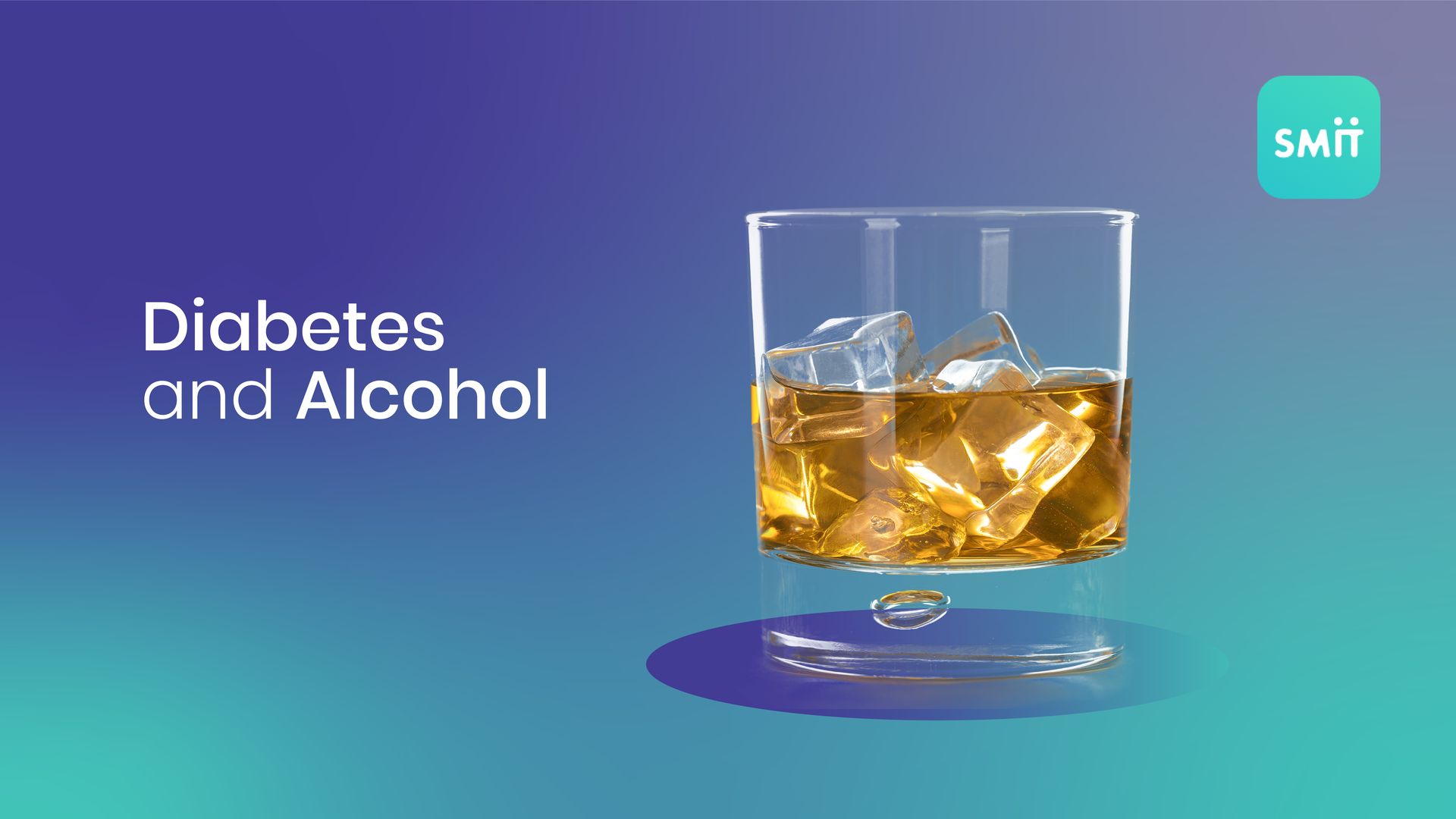We’ve heard doctors warn patients that alcohol and diabetes don’t mix. Some people may have health issues that make alcohol incompatible. Or maybe they’re just worried about all those calories—and carbohydrates. But people with diabetes are not required to abstain from alcohol, but it is not necessarily a healthy mix, and diabetics should drink with prudence. The association between alcohol and type 2 diabetes is complicated since it involves complications, and people with diabetes should regularly control their drinking. The hazards, among other things, are determined by the amount and kind of alcohol ingested. The occasional drink or glass of wine isn’t such a bad thing. After all, a daily drink has its advantages. Even so, diabetes may make happy hour a little difficult. Here’s everything you need to know about drinking and how to do it responsibly.
The Effects of Alcohol on People Who have diabetes
Drinking while you have diabetes can increase many of the issues linked with the illness due to the nature of how alcohol is digested and its effect on your body. Diabetes already has a significant influence on your health, and there are side effects of alcohol. Alcohol can cause blood sugar fluctuations, interfere with diabetic medicines, impair liver function, raise your risk of hypoglycemia, and have a negative influence on your long-term health.
What is the effect of alcohol on your Blood Sugar Levels
Because of how it affects glucose, a type of sugar that your body utilizes for fuel, alcohol and blood sugar level are interlinked, alcohol has the potential to induce a spike in blood sugar levels. Alcohol slows the metabolism and can be broken down in as little as five minutes after consumption. This increases the quantity of insulin produced. So, if you plan on having a few drinks, make sure to monitor your blood sugar levels before, during, and after.
What happens to the medication when Diabetics drink alcohol
Because persons with diabetes rely on insulin to control their blood sugar levels, they must be extra cautious when it comes to alcohol use. Alcohol can induce blood sugar fluctuations, which may alter how frequently or when you inject insulin. Diabetes medications, in addition to insulin, are used by some patients to reduce blood glucose levels. This places an additional burden on the pancreas. When the effects of these drugs are coupled with alcohol use, you are more likely to develop hypoglycemia.
What are the effects of alcohol on your Liver Function
When you aren’t drinking, your liver’s major function is to store glycogen so that you have a supply of glucose during times when you aren’t eating. This helps to balance your blood sugar and keep it stable throughout the day. When you drink, your liver is largely focused on this breakdown, and the liver is unable to do its function, which can lead to even lower blood sugar levels. The pancreas is also involved in blood sugar regulation. Chronic alcohol consumption can impair the function of your liver and pancreas.
Alcohol Consumption Can cause Hypoglycemia
Hypoglycemia is a usually dangerous disorder that happens when your blood sugar levels fall below 70 mg/dL. It is extremely fatal if left untreated. When diabetics drink alcohol, your liver is unable to retain glycogen, resulting in a dip in blood sugar. When you drink a lot of alcohol without eating, your body has fewer carbohydrates to use for energy generation. This raises the likelihood of your body going into hypoglycemia shock. If you observe any indicators of hypoglycemia, you must act quickly. Consume 15 to 20 grams of fast-acting carbs to swiftly raise your blood sugar levels. Seek medical attention as soon as you begin to feel confused and unable to keep food down.
Carbohydrate and calorie Confusion
There are other effects of drinking alcohol; unlike protein, fat, and carbohydrates, does not require insulin to supply energy to the body. However, many people believe that alcoholic beverages are high in carbohydrates, not recognizing that wine and spirits are almost carbohydrate-free, with only a trace of carbohydrate in spirits. When you’re in danger of hypoglycemia, high-carb beverages may seem like the best solution, but it’s a little more complicated. Because liquid sugars are readily absorbed by the body, those carbohydrates won’t help you prevent or manage a low that may come hours after you drink. Food, on the other hand, is progressively digested and so gives better protection against lows.
Do’s and Don’ts
When diabetics drink alcohol they should adhere to the following alcohol intake guidelines:
- Drink no more than two drinks of alcohol in a single day if you are a man, and no more than one drink if you are a woman. Only consume alcohol with meals.
- Slowly consume.
- Drinks with a “sugary” flavor, such as sweet wines or cordials, should be avoided.
- Keep an eye on what you eat when you’re drinking.
Take-away
When you have diabetes, drinking is unique, and there is no common guideline for how to do it safely. Talk to your doctor about your drinking habits, and they will be able to give you advice on how to drink in a way that works for you.



0 Comments